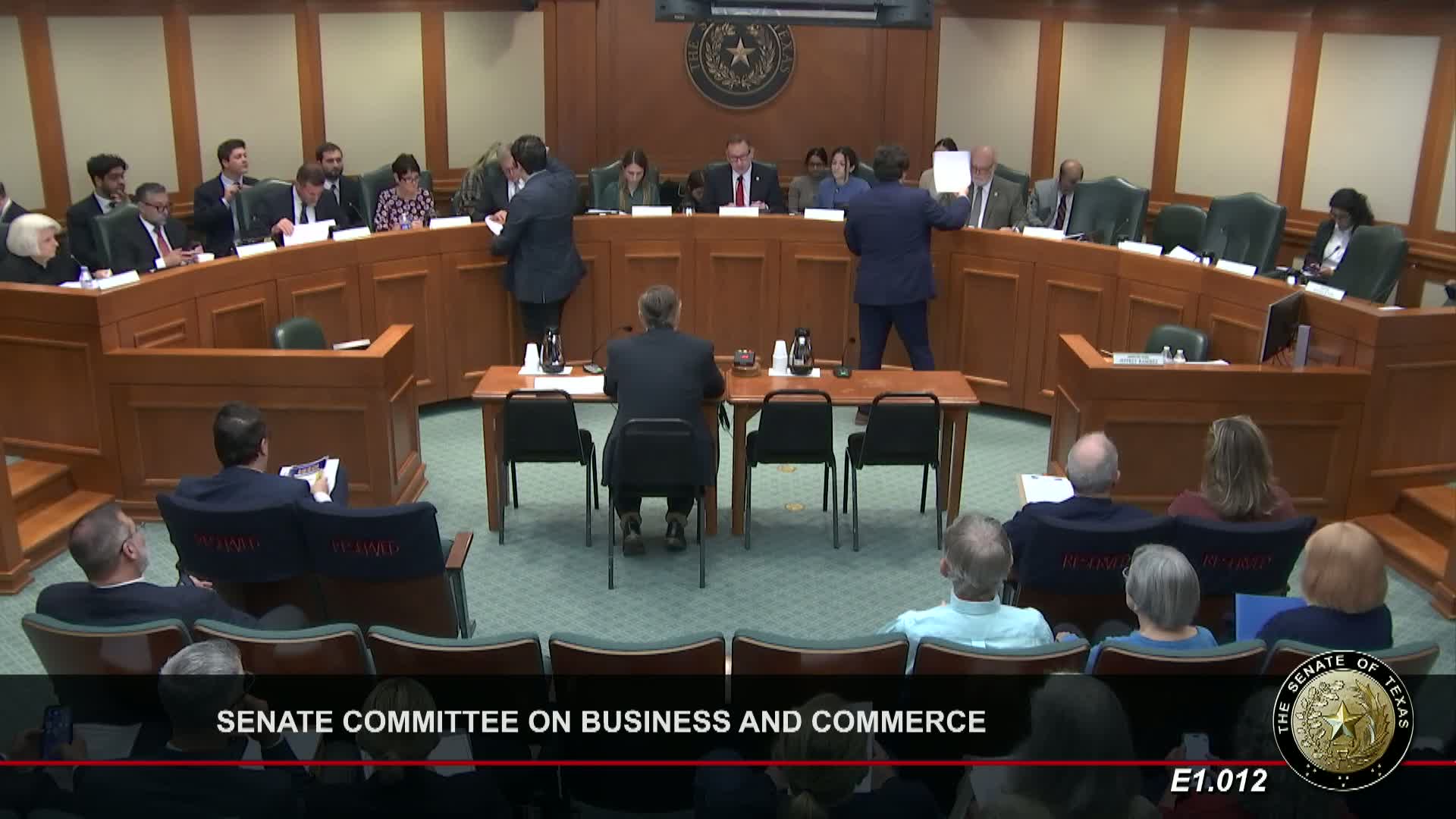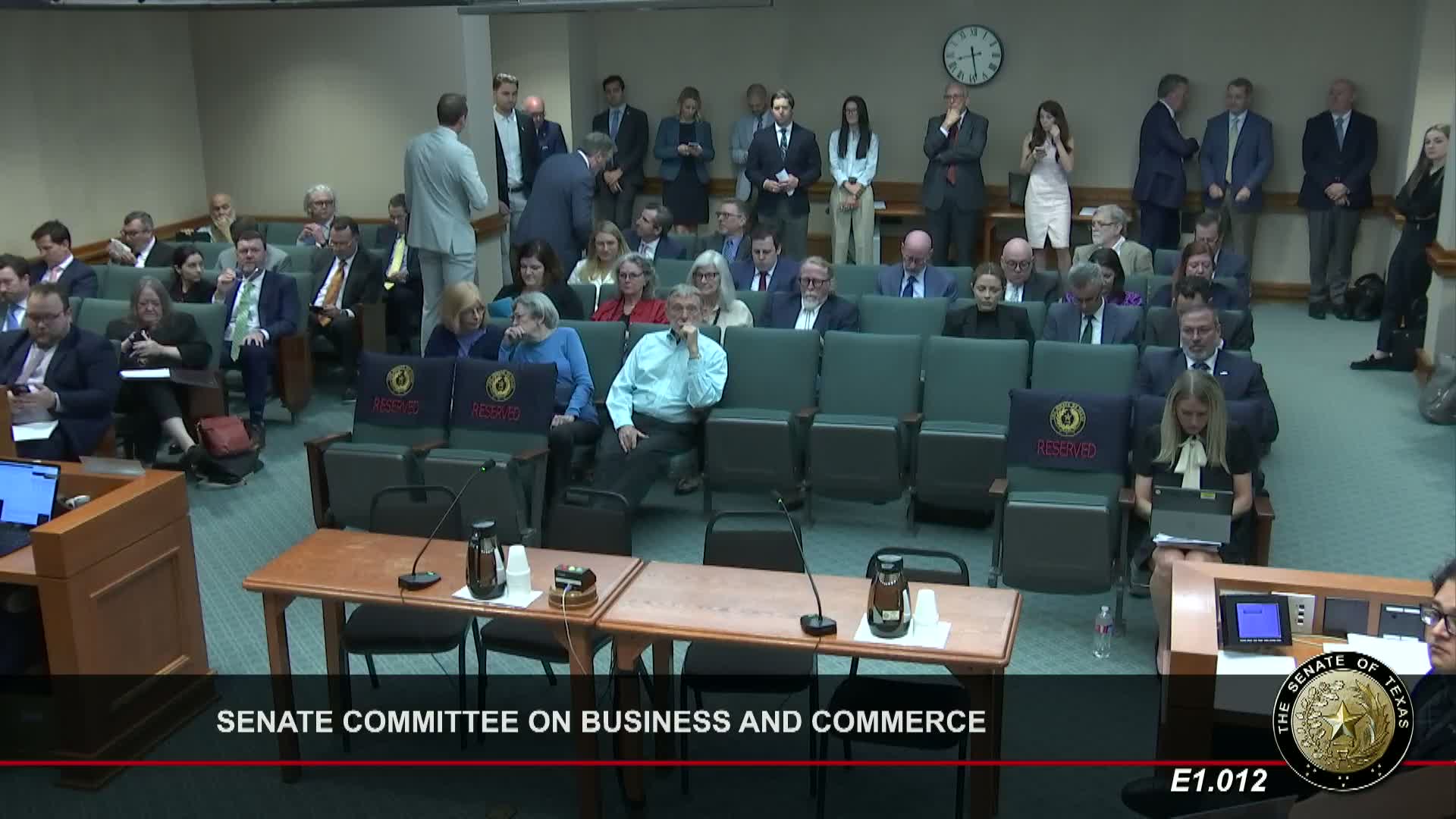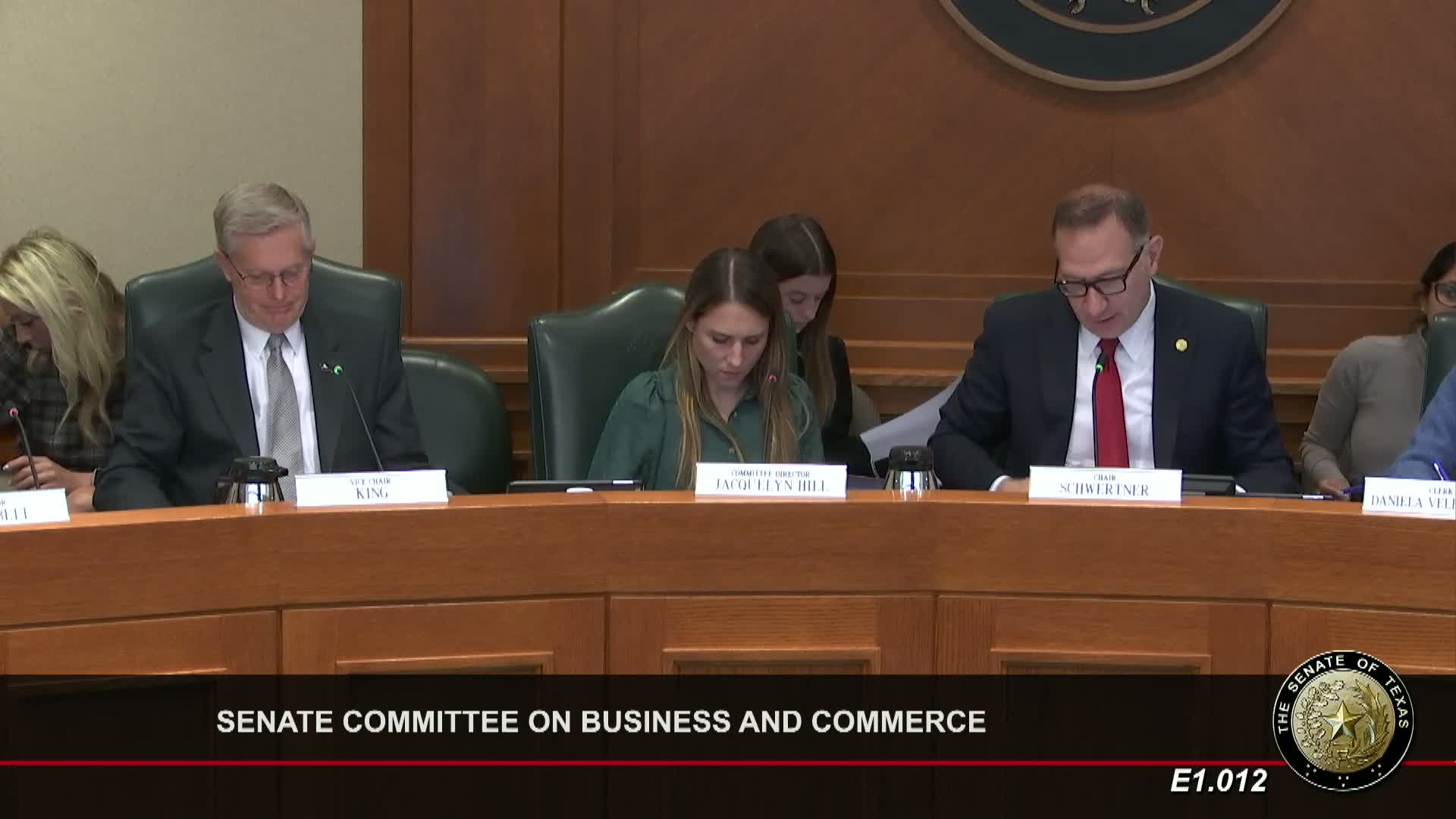Article not found
This article is no longer available. But don't worry—we've gathered other articles that discuss the same topic.

Senate committee adopts substitute for bill to regulate virtual‑currency kiosks after sponsor cites Iowa fraud findings

Senate committee hears extended testimony on House Bill 14 to fund advanced nuclear projects

